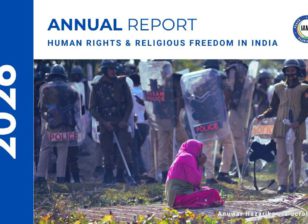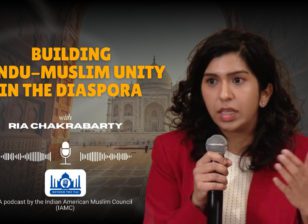Extremist Hindu group moves court seeking to vacate over 200-year-old mosque
In the latest case of Muslims losing their rights over their own historic mosques, the violent Hindu supremacist group Bajrang Dal filed a plea in the Karnataka High Court demanding that the over 200-year-old Jamia Masjid be vacated immediately and handed over to Hindus.
The group baselessly claimed that the mosque, which was constructed during the rule of the Muslim king Tipu Sultan, was once a Hindu temple.
Hindu supremacists across India have demanded surveys of historic mosques, circulating the propaganda claim that all Muslim structures were built on the remains of Hindu temples.
Recently, a court allowed Hindu supremacists to probe an 800-year-old mosque in Karnataka’s Mangaluru city.
In Uttar Pradesh’s Gyanvapi mosque, Hindu supremacists who ludicrously claimed that the mosque’s ablution fountain was a representation of the Hindu deity Shiva were allowed to seal off the fountain from Muslim use.
The historic Shahi Idgah mosque has also been a target of Hindu supremacists in Uttar Pradesh, who have been demanding for years that the mosque be demolished to make way for a Hindu temple.
Hindu supremacists force school to apologize for reciting Azaan during event
Hindu supremacists harassed the administrators of a school in Karnataka state and forced them to apologize for starting a sports event by having students recite the Muslim call to prayer, along with Hindu and Christian prayers, to commence the event.
Administrators of the Mother Teresa Memorial School say that the school commences events with prayer songs from three religions – Hinduism, Islam, and Christianity – which make up the student’s religious demography.
BJP-ruled Karnataka is witnessing a rising trend of Hindu extremists cracking down on all forms of Islamic representation in the public sphere, including by maintaining an unconstitutional ban on hijabs in schools.
Hindu supremacists objected to the recitation of the Azaan and staged a protest, falsely claiming that students were “forced” to recite the Azaan.
In a video, a leader of a Hindu supremacist group is seen coercing the school authorities to accept that playing the Azaan was a “mistake.”
The school has decided not to play the Azaan henceforth and replace it with the national anthem. “We will be only playing Hindu and Christian prayers and the national anthem,” they said.
Hindu supremacist mobs vandalize Muslim shrine, turn it into temple
A shrine located on Muslim-owned land was vandalized and turned into a temple overnight in Madhya Pradesh’s Indore district.
Locals say that the police have taken no action despite five days having passed since the incident.
An idol has been placed inside the shrine’s premises and the boundary wall has been painted over to indicate it to be a temple.
India-based Twitter accounts triggered violence in Leicester: Report
A network of fake social media accounts originating outside of Britain played a role in violence between Hindu extremists and Muslims in Leicester earlier this year, according to a report released by the Network Contagion Research Institute (NCRI) at Rutgers University.
In September, groups of balaclava-clad Hindu men led a march through a predominantly Muslim and Sikh area. The men were chanting the Hindu religious slogan “Jai Sri Ram,” which is commonly raised by Hindu supremacist rioters and lynch mobs. Groups of people from both sides came out in the streets to protest, resulting in physical altercations and riots. Police arrested 47 people.
An estimated 500 inauthentic accounts that called for violence and promoted memes, as well as incendiary videos, were created on Twitter during riots. Researchers also found evidence of bot-like accounts which disseminated both anti-Hindu and anti-Muslim messaging, each blaming the other for the violence.
After the first instances of fake videos spread on Twitter, a “highly orchestrated echo chamber” from India kicked in to amplify tweets “solely blaming Muslims for the events in Leicester.”
This suggested that local community tensions were ripe for exploitation on Twitter by external nationalist groups, the researchers warned.
Rising Hindu extremism is no longer contained within India, and now affects Indian diaspora communities in the United States, the United Kingdom, and other countries around the world.




